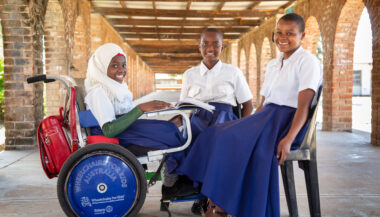Oxfam is responding to the escalating crisis in Lebanon, providing essential support to the hundreds of thousands of people who have been forced to flee as Israeli airstrikes bombard their homes and communities. The influx of internally displaced people, primarily from southern Lebanon, will quickly create disastrous conditions for local communities, beyond the ability of an overloaded international humanitarian system to properly meet.
Oxfam and our partners are supporting internally displaced people in shelters in Beirut, Mount Lebanon and North Lebanon with clean water and sanitation, emergency cash, food, and hygiene and menstrual hygiene kits.
Oxfam’s Lebanon country director Bachir Ayoub said the country can ill afford this on top of existing crises.
“This conflict was predictable and avoidable. It is the result of the failure to achieve a ceasefire in Gaza. For decades, the people of Lebanon have endured one crisis after another without getting the opportunity to fully recover. This latest emergency will only deepen the existing challenges facing the people of Lebanon and further destabilise an already volatile region.”
The international community must condemn this escalation and take bold action to stop it now. Israel continues to act with impunity and it must be held to account for its actions in both Lebanon and Gaza. All parties must abide by international humanitarian law and held to account where potential violations may be involved.
The spread of hostilities into Lebanon has inflicted immense damage on civilian infrastructure and led to a tragic loss of life. Lebanon and the region cannot afford to bear the weight of this crisis. This broader regional escalation underscores the urgent need for an immediate and permanent ceasefire in Gaza.
For interviews with spokespeople, please contact Lucy Brown at [email protected] or 0478 190 099.
Notes to editors
Oxfam has worked in Lebanon since 1993, in partnership with local organisations, to support disadvantaged people with cash, clean water, and proper sanitation, as well as income generating opportunities, advocating for women’s rights and reproductive health services, and renewable energy solutions.
We also work with Syrian and Palestinian refugees, as well as Lebanese communities, including people with disabilities+ and migrant workers.
We work with 30 local partner organisations in North Lebanon, the Bekaa Valley, and Beirut who deeply understand the needs of the communities they are part of.
Over the past decade, we have responded to the multiple crises Lebanon has faced, including the Syria crisis, the COVID-19 pandemic, the Beirut Blast, the Economic crisis, the 2022 cholera outbreak, and violent conflicts.

